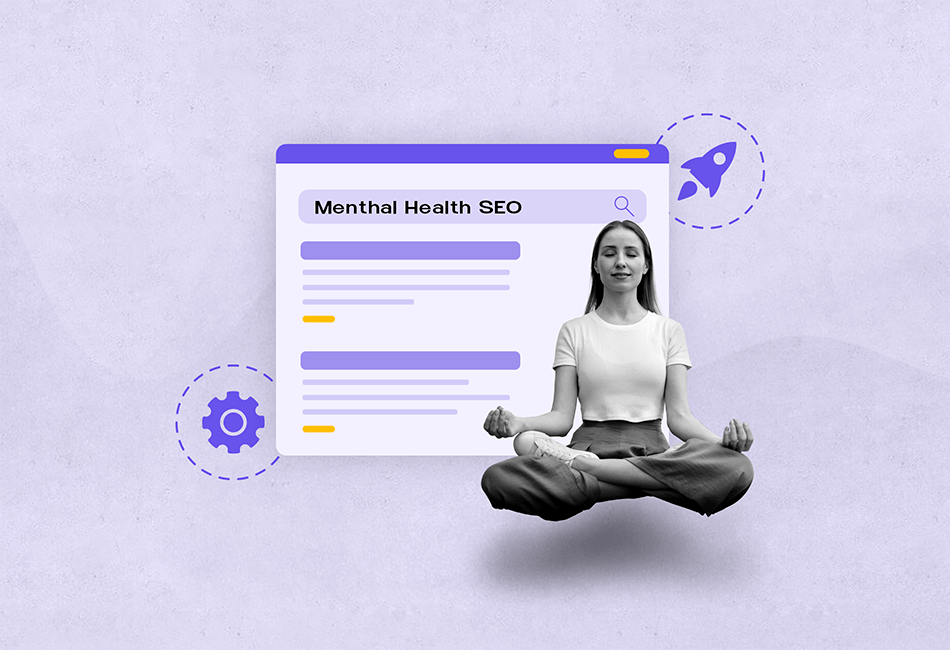You’ve heard it before: “You need to blog more to improve your SEO.” But if you’re like most business owners—especially in high-stakes industries like mental health or addiction treatment—you’ve probably wondered: Is blogging actually worth the time and effort?
Let’s clear that up right now — yes, blogging absolutely helps SEO.
But here’s the catch: not all blogging helps. Random, inconsistent, unoptimized posts won’t get you far. Strategic blogging, on the other hand — the kind that’s built on keyword data, focused on search intent, and optimized for both readers and search engines — can completely transform your online presence.
At Huely Inc., we specialize in SEO and content strategy for treatment centers, therapy practices, and mental health professionals. And we’ve seen firsthand how the right blog strategy can drive thousands of monthly visitors, boost conversion rates, and seriously improve keyword rankings — all organically.
In this guide, we’ll break down exactly why blogging still matters and how to do it in a way that actually moves the needle.
What Does “Blogging for SEO” Actually Mean?
Before we get into the benefits, let’s define the term.
Blogging for SEO is the practice of writing and publishing content that’s specifically designed to:
- Rank for valuable keywords on search engines like Google
- Attract and engage your ideal audience
- Support your overall website structure and search performance
This isn’t the same as just “posting updates.” A lot of businesses think they’re blogging because they publish company news, staff spotlights, or motivational quotes. While that content might be great for brand-building, it doesn’t usually help your SEO.
True SEO blogging means:
- Targeting keywords based on search volume, difficulty, and intent
- Solving specific problems or answering common questions your audience is searching for
- Structuring posts with proper headings, meta descriptions, and internal links
- Optimizing for readability, engagement, and on-page SEO best practices
This kind of blogging builds organic traffic, improves search engine rankings, and supports your business goals long-term.
7 Ways Blogging Helps SEO
1. Blogging Targets Long-Tail Keywords (and Lots of Them)
Long-tail keywords are the specific, less competitive search phrases that your ideal customers are typing into Google.
Examples include:
- “Is my teenager addicted to video games?”
- “How to help someone with anxiety without making it worse”
- “Best outpatient rehab for alcohol near Chicago”
These aren’t terms you can easily squeeze into a homepage or a service page — but a blog post? Perfect place.
By writing strategic blog content, you create a home for all those long-tail searches. And those are exactly the types of searches that bring in warm, ready-to-convert traffic.
A single blog post can rank for dozens (even hundreds) of related terms, if written correctly.
2. More Indexable Pages = More Visibility
Every new blog post you publish gives Google another opportunity to index your site — which means more chances to show up in search results.
Think of your website like a fishing net. Every blog post adds another section to the net. The bigger the net, the more likely you are to catch something—in this case, qualified visitors.
Plus, consistent blogging shows Google that your site is active, up-to-date, and worth revisiting — all signals that can help improve your overall rankings.
3. Internal Linking Supports Site Structure and Rankings
A strong internal linking strategy is one of the most underrated aspects of SEO.
Here’s how blogging helps:
- Blog posts create natural opportunities to link back to core service pages, boosting their authority.
- Related blog posts can link to each other, improving crawlability and keeping users on your site longer.
- Well-organized internal links help Google understand the relationship between different pages on your site.
This is what’s known as a topic cluster strategy — where your blog posts support a central “pillar” page, improving SEO across the entire cluster.
4. Blogs Attract Backlinks (One of the Top Ranking Factors)
- Industry statistics
- Original research
- Step-by-step guides
- Thought leadership or expert insight
5. Blog Content Supports the Entire Marketing Funnel
- Top of Funnel (Awareness): Posts answer common questions or explain conditions (“What is CBT?”, “Early signs of addiction”)
- Middle of Funnel (Consideration): Posts compare options or explore treatments (“Outpatient vs inpatient rehab”, “How to choose a therapist”)
- Bottom of Funnel (Conversion): Posts target high-intent terms (“Best rehab in Arizona”, “Therapist for anxiety near me”)
6. Blogging Demonstrates E-E-A-T (Experience, Expertise, Authoritativeness, Trustworthiness)
- Sharing professional insights
- Breaking down complex topics for a general audience
- Citing reputable sources
- Providing real value (not just fluff)
7. Blogging Compounds Over Time (Unlike Ads)
One of the biggest benefits of blogging? It keeps working long after you hit publish.
Unlike paid ads — which stop the second you stop paying — a blog post can generate organic traffic for months or even years.
Even better, the more content you publish, the more momentum you build. It’s like compound interest for your website.
That’s why businesses that blog consistently get:
- 67% more leads per month than those who don’t
- 97% more inbound links and 55% more visitors
- Higher domain authority over time
Blogging Mistakes That Hurt Your SEO
Of course, not all blogging helps SEO. In fact, some blogs can actually do more harm than good.
Here are some common mistakes we see when auditing client blogs:
How to Create Blog Content That Actually Ranks
Step 1: Do Smart Keyword Research
- What your audience is searching for
- Where you have ranking opportunities
- What your competitors are doing
Step 2: Match Search Intent
Step 3: Optimize Your Content
- Use headers (H1, H2, H3) to organize information
- Include your target keyword naturally
- Add internal and external links
- Write a compelling meta title and description
Step 4: Use Visuals and Media (Optional)
Step 5: Promote and Update
Blogging Helps SEO — When Done Right
Here’s the bottom line, blogging gives your site more keyword opportunities, boosts your authority, earns backlinks, and makes your content more user-friendly.
It works at every stage of the SEO funnel — and keeps bringing in traffic long after it’s published.
But there’s a catch: blogging without a plan won’t cut it. To see real results, you need a solid strategy, consistent effort, and true SEO know-how.
Let Huely Turn Your Blog Into a Lead-Generating Machine
If you’re in the addiction treatment or mental health space, you can’t afford to be invisible on Google. And you definitely don’t have time to guess your way through blogging.
That’s where we come in.
At Huely, we specialize in:
- Strategic SEO content writing
- Keyword-driven blog calendars
- Full-service blogging and optimization
- SEO for addiction treatment and mental health professionals
Want to turn your blog into a traffic and lead magnet? Let’s talk.
Schedule your free strategy session today.
Already have a blog but not seeing results? We can audit your content and show you exactly what’s holding your SEO back.





